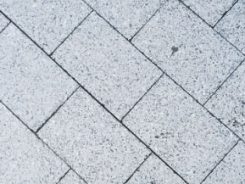Islamic Calligraphy has arguably become the most reverenced form of Islamic art. It provides a link between the languages of the Muslims with the religion of Islam. The Muslim calligraphists have great contributions in taking this Islamic art to this zenith. The holy book of Islam, Al-Quran, has played an important role in the development and evolution of the Arabic language, and by extension, calligraphy in the Arabic alphabet. The famous Islamic artists have created Arabic calligraphy of supreme quality. Till today, The chief sources for Islamic calligraphy are the proverbs and complete passages from the Holy Quran. In modern times, the supply of Islamic calligraphy has also become a flourishing Islamic art business.
Islamic calligraphy is a visible expression of the highest art of all for the muslim. It is the art of the spiritual world. Calligraphy literally means writing beautifully and ornamentally. Islamic calligraphy is the art of writing, and by extension, of bookmaking. This art has most often employed the Arabic script, throughout many languages. Since Arabic calligraphy was the primary means for the preservation of the Quran, Calligraphy is especially revered among Islamic arts. The work of the famous muslim calligraphers were collected and greatly appreciated throughout Islamic history. Consideration of figurative art as idolatrous led to calligraphy and abstract figures becoming the main methods of artistic expression in Islamic cultures. Contemporary muslim calligraphers are also producing the Islamic calligraphy of high artistic quality.
Calligraphic scripts
- The Kufic script is the first of those calligraphic scripts to gain popularit.
- It was angular, made of square and short horizontal strokes, long verticals, and bold, compact circles.
- For three centuries, this script had been mainly used to copy the Quran.
- The cursive Naskh script was more often used for casual writing.
- This script had rounder letters and thin lines.
- It would come to be preferred to Kufic for copying the Quran as techniques for writing in this style were refined.
- Almost all printed material in Arabic is in Naskh.
- The Thuluth would take on the ornamental role formerly associated with the Kufic script in the 13th century.
- Thuluth is usually written in ample curves as it has a strong cursive aspect.
- The Persians took to using Arabic script for their own language, Persian after their conversion to Islam.
- The Taliq and Nastaliq styles were contributed to Arabic calligraphy by the Persians.
- Nastaliq style is extremely cursive, with exaggeratedly long horizontal strokes.
- The Diwani script is a cursive style of Arabic calligraphy.
- It was developed during the reign of the early Ottoman Turks (16th and early 17th centuries).
- This outstanding Diwani script was both decorative and communicative.
- Finally, Riqa is the most commonly used script for everyday use.
- It is simple and easy to write.
- Its movements are small.
- In China, a calligraphic form called Sini has been developed.
- This form has evident influences from Chinese calligraphy.
- Hajji Noor Deen Mi Guangjiang is a famous modern calligrapher in this tradition.
Calligrams
The most Islamic of arts in the Muslim world, has also its figurative sides. The muslim calligraphers have produced wonderful anthropomorphic figures by interweaving written words, made from an “Allah” , a “Muhammad” , a “Bismillah” , etc., or using micrography. These include , (Ali, the Ideal Human of mystics, a praying man, a face), (Duldul, horse of Ali, horse (Alis Duldul), fish, stork or other bird (the quranic Hudhud) and unanimated representations (a sword (Dhu al-Fiqar) and a mosque. Calligrams are related to Muslim mysticism and popular with many leading calligraphers in Turkey, Persia and India from the 17th century onward.
Pakistani Islamic Calligraphy
Pakistan has produced Islamic calligraphist of international recognition. Sadeqain is on of these international fame Islamic calligraphist. He was an untraditional and self-made, self-taught painter and calligrapher. He did a lot of work on Quranic calligraphy. Many other contemporary Pakistani calligraphists like Gul Gee have created great contemporary Islamic calligraphy. These days, Islamic calligraphies of Tufail and Uzma Tufail are getting very much popular both in Pakistan and all over the world.
Islamic Calligrahpy as an Islamic Gift
The Muslims love to adore their homes, offices and places of their work with the Islamic calligraphy. The Islamic calligraphies especially the verses from the Holy Quran and the verses from the sayings of the Holy Prophet are considered to be very sacred to muslims. Islamic calligraphy indeed make the perfect gift for a muslim for any special occasion. A muslim can send an Islamic gift of Islamic calligraphy to congratulate his relative or friend on his new home or new office or on his birthday or wedding ceremony or on Eid Festival.
It is great news for the muslims living all over the world to get the Islamic paintings and Islamic calligraphy of their own choice. Please visit our website at www.paintingsgifts4u.com and click the section of the Islamic paintings. You can get Islamic Calligraphy of your choice just by selecting the Item number of the Islamic Painting or by sending the Holy verse of your choice. We also supply Islamic paintings and Islamic Calligraphy from Pakistan on wholesale basis at very best prices. We are supplying cheap Islamic paintings and cheap Islamic calligraphies with high quality.























